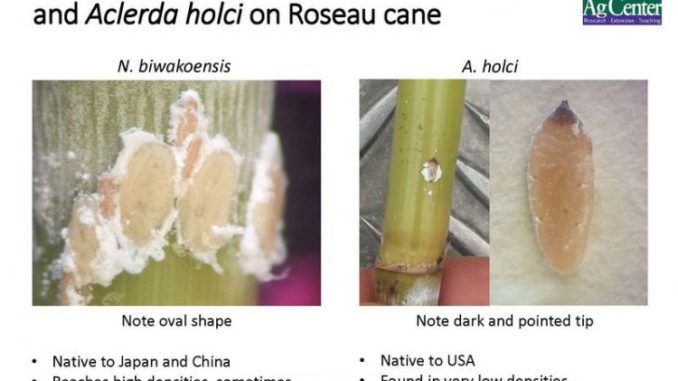
Tiny non-native insect already found in 11 coastal parishes, biologist says
With roseau cane dying off at an alarming rate in 11 coastal parishes, the Louisiana Department of Wildlife and Fisheries is asking the public to limit transporting the cane, and to report suspected die-off locations.
The roseau cane scale is a non-native insect that consumes the plant and may be contributing to the die off that has been found in 11 Louisiana coastal parishes, including Plaquemines, St. Bernard, St. Tammany, Jefferson, Lafourche, Terrebonne, St. Mary, St. Charles, Orleans, St. John the Baptist, Tangipahoa as well as southern Mississippi, according to a press release from the Louisiana Department of Wildlife and Fisheries.
Waterfowl hunters and fishermen are encouraged to do the following:
· Do not transport roseau cane.
· Do not tie boats up to roseau cane.
· Remove all roseau cane debris from boats prior to leaving local marinas.
· Wash and drain boats at or near marinas with soapy water.
These measures will limit the spread of the scale or other vectors that could be the source of the die off, the release states.
The public is also encouraged to report areas of stressed cane, as well as the presence of the roseau cane scale. A short web-based survey is the best way to report those observations. To participate, click here.
Roseau cane is a tall wetland grass that helps protect the Mississippi River Delta, and Louisiana’s coastal region. Unlike some marsh vegetation, it stands up well to tropical storms and is one of the most erosion-resistant marsh plants along the Louisiana coast.
The spread of the scale could have severe impacts on the health of coastal marshes, as well as valuable agricultural crops throughout the state, according to the release. For more information on the cane, click here.
